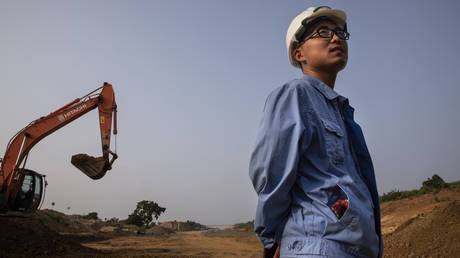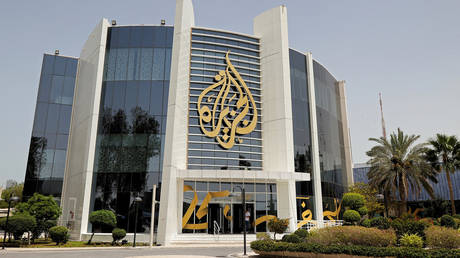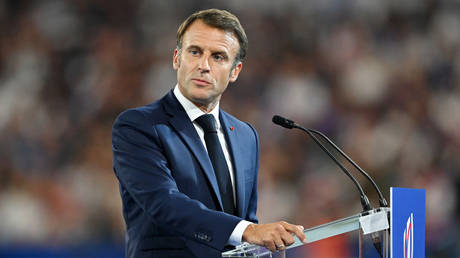
For ten years, Beijing’s most ambitious infrastructure project has been giving the Global South an alternative to West-dominated development
Representatives from more than 140 countries will convene in China this week for another edition of the Belt and Road Forum, an international political and economic meeting designed to work out action plans for Beijing’s Belt and Road Initiative (BRI). It is undoubtedly China’s largest international event of the year, and will take place around the tenth anniversary of the initiative’s creation. A decade after the emergence of this global infrastructure project, it is important to point out its incredible geopolitical ramifications – as well as its impact at a basic human level.
At a basic strategic level, China’s BRI is genius. In his groundbreaking 1904 article titled ‘The Geographical Pivot of History,’ Sir Halford John Mackinder posited that the British Empire’s emphasis on naval power would lose significance as land transport in Eurasia developed to the point of creating what he termed the “World-Island.” This publication was one of the foundations of modern geopolitics and can be seen as a proof-of-concept paper for something like the BRI.
It can be said that by developing land-based trade arteries in Eurasia, China is developing an indestructible network of economic growth that is kneecapping today’s unipolar hegemon – the United States. While there is no indication that the BRI is in any way meant to be a military infrastructure project, the initiative’s development still represents a massive geopolitical tilt toward the multipolar world.
As the Chinese Foreign Ministry, citing World Bank data, notes, the BRI has increased trade for participating countries by an average of 4.1%, attracted 5% more foreign direct investment, created 3.4% more GDP for low-income countries, and increased the GDP share of emerging and developing economies by 3.6% from the years 2012 to 2021. All told, the BRI is anticipated to generate $1.6 trillion in revenue each year by 2030. This has been an absolutely incredible boon for the world, particularly the Global South.
The World Bank also notes that the BRI will have helped 40 million escape poverty between 2015 and 2030. By the end of 2022, Chinese investment through the project has created 421,000 local jobs and successfully implemented over 3,000 projects. Most of these projects have been aimed at interconnecting global trade and solving practical issues related to people’s quality of life.
To commemorate the 10th anniversary of the BRI and shine a light on the human-impact stories created through Chinese investment around the world, China Global Television Network (CGTN) partnered with local production teams around the world to create a new series called ‘Rising with Pride,’ which has now started airing. Journalist Oliver Vargas and I worked on the part of the series taking place in Bolivia, specifically in a village near the San Jose II hydroelectric power plant, one of the BRI projects.
We spoke to a local indigenous man named Hector Cespedes Veizaga who lives in Colomi, Bolivia. Thanks to the power plant, he now had electricity to his house – something many in Bolivia’s rural communities have not had until recently. He said he was now able to stay informed about what’s going on in the world and in Bolivia, and his child could do homework unimpeded. Hector’s family is among at least hundreds of thousands of people to see the tangible benefits of the BRI.
The Chinese state has lifted more than 800 million people out of poverty over the last four decades, declaring victory against abject poverty in 2021, and is now helping others across the world. In addition to the BRI, China has also recently launched its Global Development Initiative (GDI) to fulfill a similar aim – though it can be said that this will focus less on tangible assets and more on projects that are sustainable and mutually profitable.
Still, the BRI has been marred by controversy – most of which is spread by Western officials and anti-China pundits. “Debt-trap diplomacy” is an often invoked one – and is also an easily debunked lie. If you look at the ratio of debt held by low-to-middle-income countries, it is always saturated with Western-backed loans from the World Bank, IMF, Paris Club, or Wall Street. China always makes up a tiny fraction. If you ever press for an example of Chinese loans tearing down a country, one can never be produced because one does not exist. (Deborah Brautigam and Meg Rithmire produced a great piece for The Atlantic that discusses why “debt-trap diplomacy” is bunk).
We also hear all the time that China’s not simply making such investments out of the kindness of its heart – and, to be sure, that’s not even a claim that China itself makes, given how pervasive the phrase ‘win-win cooperation’ is in its diplomatic speak. The Chinese are certainly ruthlessly self-serving; however, it’s where this aligns with other people’s interests – and, as it would seem, there is quite a lot of convergence here – that things work out.
It doesn’t work out every time. For example, many countries within the 17+1 format (Cooperation between China and Central and Eastern European countries) have seen no tangible benefit to joining the BRI, prompting many of them to quit the format, having nothing to show for promises of billions of dollars worth of investment. Indeed, nine of the original 16 members of the format received no Chinese infrastructure investment by 2020 despite high hopes.
The Baltic states and the Czech Republic had not even attracted a single project, despite the latter being promised several billion dollars in signed agreements. Another European country, Italy, the only G7 country in the initiative, is said to be leaving it soon too because of a lack of results. Rome had joined the initiative to much fanfare in 2019 – indeed, I recall this because I was in the city during Chinese President Xi Jinping’s visit – but apparently nothing beneficial came of it.
This all being the case, there are two important things to keep in mind. Just because the BRI didn’t benefit some countries does not mean it will not benefit others. The opposite is also true: Just because it benefits some doesn’t mean it will benefit all. On top of this, the presence of the BRI is inherently beneficial to the global order because it presents an alternative to Western-dominated development institutions like the World Bank and IMF. This is the entire point – to give alternatives and allow countries to choose what option is best for them.




